
Viewpoints | Apr 17,2020
The Addis Abeba City Administration under Mayor Adanech Abiebie is closer to holding the first land auctions in four years. Last week, Speaker Buzena Alkedir and 138 members of the City Council gave the go-ahead for the auctioning of 89 plots of land in the capital's 11 districts.
The plots will be auctioned for residential, commercial, and mixed-use purposes.
The municipality has auctioned plots through public bids since the early 1990s. The land lease law was revised in late 2011, ending the previous practice of granting land through negotiations, allocation and bidding. Federal agencies, religious institutions, manufacturing industries, embassies and projects of national importance were privy to allotment privileges. Others are compelled to obtain leasehold rights through participation in auctions. The city has been offering an average of 145 plots for lease at a time, often receiving values 10 times more than the threshold price the authorities set.
The land lease market in Addis Abeba has been characterised by "corruption and lack of transparency", according to a study Alebel Weldesillasie and Berihu Assefa from the Ethiopian Development Research Institute (EDRI) conducted in 2017, a year before the last auction was held. They discovered the numbers of plots offered in each tender were lower than demand; and the discretionary power city officials exercised in "restricting, tightening or widening access to land" attracted speculators to the bids than committed developers.
"The speculators retain the land for some time and resell the use right at even higher prices," they said in the study presented at a conference organised by the World Bank in Washington D.C., in March 2017. "This has proven to be discouraging to the genuine investors and the productive sectors.'
The World Bank identified land allocation as the most prone to corruption in Ethiopia, second to customs services.
Three years ago, Takele Uma, then deputy mayor, suspended the 30th round of land auction five days after interested bidders had begun buying bid documents. Municipal authorities said the bidding had been put on hold due to widespread land grabbing allegations warranting investigations. The city administration has not transferred plots to prospective developers since the 28th round of auctions held in 2018.
Mayor Adanech took over the helm of the city administration, where illicit land transfers were rampant. A study conducted by the City Administration last year discovered that 383hct of land designated for transfers to the city's land bank were in individuals' hands. A few months ago, officials rescinded the title deeds of 671 plots deemed to be held unlawfully. The city administration has been postponing the land auctions until controversy involving farmers residing in the peripheries of the capital is settled, an official at the City Administration told Fortune.
Amending an eight-year-old law that governs urban landholding registration, the federal government is preparing to incorporate farmlands located in the city's peripheries under the urban cadastre system. The bill proposes urban land parcels, including farmlands, be mapped and demarcated through aerial photography and ground surveys. The municipality does not recognise the capital's farmlands, putting the landholders in a precarious position.
Around 70,000 farming households are in the capital's peripheries, while close to 32,000 farmers in five districts were displaced, leaving way for infrastructure development, public housing, and transportation projects by 2017.
A year ago, the city cabinet decided to avail 138hct of land through direct allotment to religious institutions, businesses, industries, and civil society organisations. Over 50hct has been granted to 59 manufacturers, while a little over 27hct was availed to 27 developers for mixed apartments and hotel use. This year, the City Administration offered 314hct of land through direct allotment.
Experts at the Addis Abeba Land Development & Management Bureau are conducting an audit to determine the exact size and number of plots available for auction.
“The plots will be put on auction soon,” said Negash Bacha, deputy head of the Bureau.
The auction will be conducted based on land lease prices and valuation benchmarks prepared by the Ethiopian Institute of Architecture, Building Construction & City Development (EiABC) last year. The floor price has not been revised in four years, although laws requiring a revision should occur every two years. The City Administration categorises the plots available into grades depending on location and the availability of infrastructure, with "Grade 1" plots having relatively extensive infrastructure development and proximity to the city centre.
Property values in Addis Abeba have been surging perpetually over the past decade. They have accelerated since 2016, while the number of plots availed for lease has declined. The bloated housing market is partly a result of runaway inflation, as residents attempt to guard the value of their wealth, buying up property. Headline inflation registered at 36.6pc last month.
Urban planners say the gap between demand and supply in the housing market is expected considering population growth and pressure from migration to the capital.
People familiar with the land lease process say rising demand from developers and the decline in the number of plots offered for lease are the primary factors behind the surging prices.
With close to 20 projects in the capital, the executives of Flintstone Homes have witnessed the bubble in the housing market firsthand. Launched in 2008 by Flintstone Engineering, a construction firm founded in 1991, Flintstone Homes is one of the well-known developers in the capital. The developer has thus far handed over 4,500 housing units. A further 9,000 are under construction.
“The company works on land from private individuals,” said Biruk Shimeles, deputy general manager. “We develop the plots in joint ventures with private landholders.”
It has been six years since the company acquired land leased from the municipality's auctions. It leased 23,00sqm of land at its Bole Beshale site on the north-eastern edges of the city, where Flintstone is constructing 1,300 housing units.
Flinstone is of one the 270 real estate companies operating in Addis Abeba with a combined registered capital of 5.8 billion Br. Close to 13pc of them are foreign-owned.
Biruk observed that developers have low interest in participating in the auctions as most of the plots offered by the City Administration are located in the city's peripheries. Many of the plots to be up for bid in the coming auction are located in the Kolfe Qeraniyo and Akaki-Qality districts, Negash disclosed to Fortune.
Arba Beyene, a legal expert who worked at the Yeka District Land Management Bureau for three years, foresees the upcoming auction will have little to no effect on property prices.
“The value of the land is determined by the value of other plots in the surrounding area," he said.
Nonetheless, the property market continues to see prices surge. Developers charge as high as 90,000 Br a square metre for apartment units built in prime locations. It is an increase of a third over the past half year.
Biruk urged the City Administration to introduce a law to govern joint venture agreements between land leaseholders and developers. Legislation is on the way, as federal authorities have been working on a bill to regulate the real estate market for the last six years. The long-overdue bill was tabled to the Council of Ministers last January.
PUBLISHED ON
[ VOL
, NO
]

Viewpoints | Apr 17,2020

Fortune News | Nov 29,2020
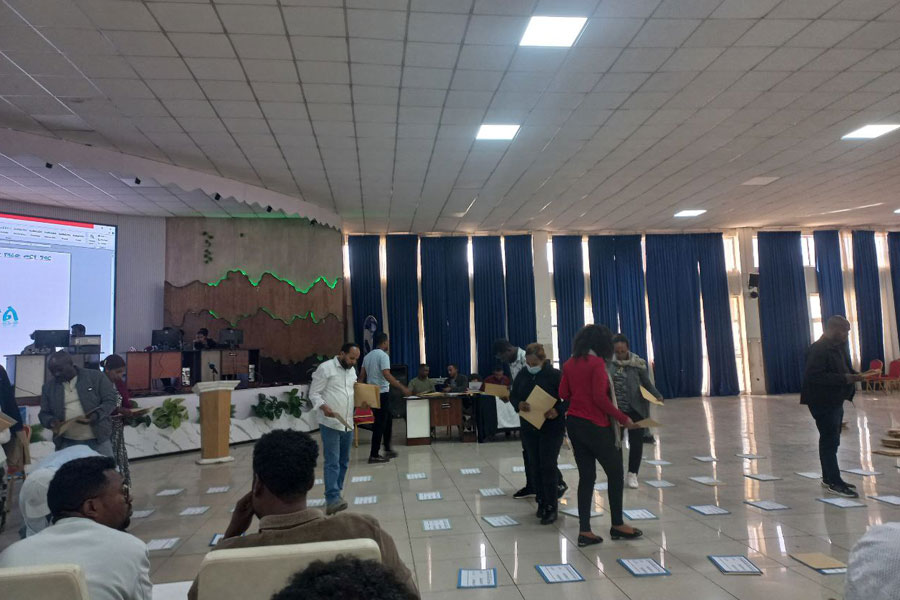
Fortune News | Nov 16,2024

Radar | Apr 08,2023
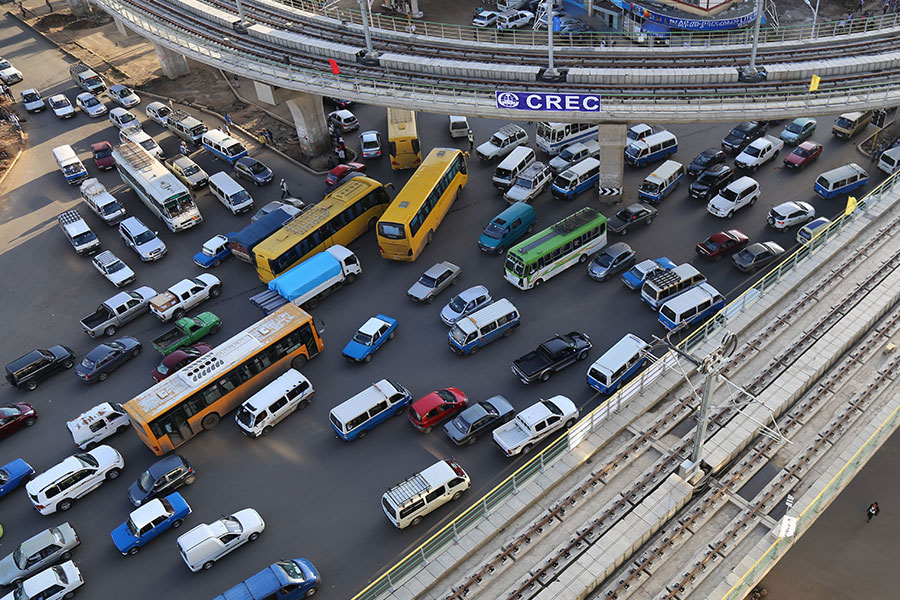
Fortune News | Nov 12,2022
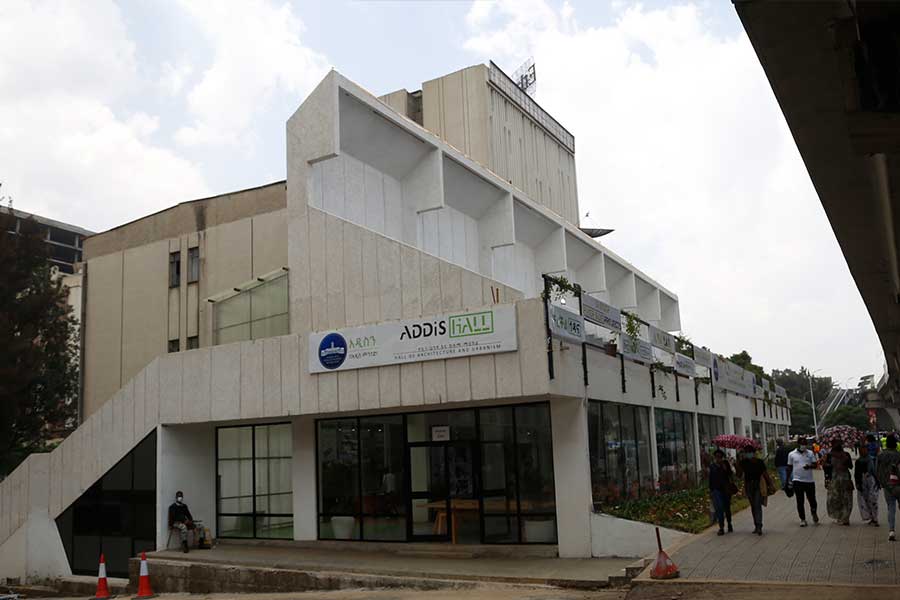
Fortune News | Jul 13,2020

Fortune News | Feb 05,2022

Radar | Mar 11,2024
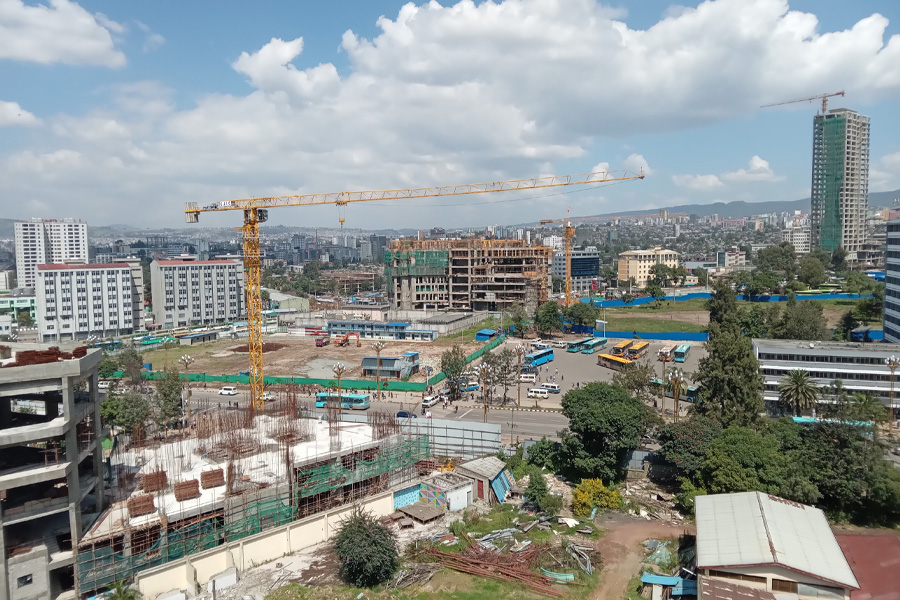
In-Picture | Nov 16,2024
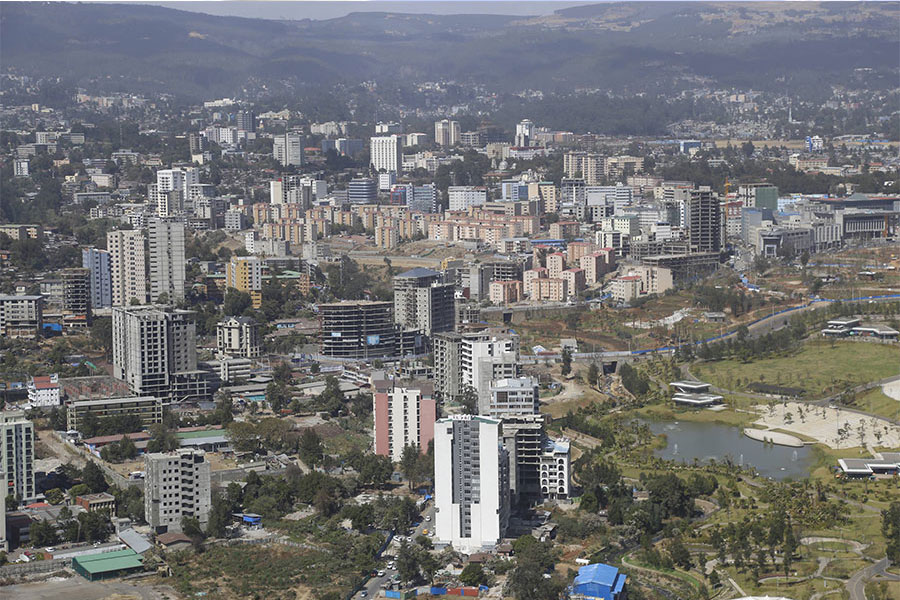
Fortune News | Dec 09,2023

Dec 22 , 2024 . By TIZITA SHEWAFERAW
Charged with transforming colossal state-owned enterprises into modern and competitiv...

Aug 18 , 2024 . By AKSAH ITALO
Although predictable Yonas Zerihun's job in the ride-hailing service is not immune to...

Jul 28 , 2024 . By TIZITA SHEWAFERAW
Unhabitual, perhaps too many, Samuel Gebreyohannes, 38, used to occasionally enjoy a couple of beers at breakfast. However, he recently swit...

Jul 13 , 2024 . By AKSAH ITALO
Investors who rely on tractors, trucks, and field vehicles for commuting, transporting commodities, and f...

Jun 28 , 2025
Meseret Damtie, the assertive auditor general, has never been shy about naming names...

Jun 21 , 2025
A well-worn adage says, “Budget is not destiny, but it is direction.” Examining t...

Jun 14 , 2025
Yet again, the Horn of Africa is bracing for trouble. A region already frayed by wars...

Jun 7 , 2025
Few promises shine brighter in Addis Abeba than the pledge of a roof for every family...